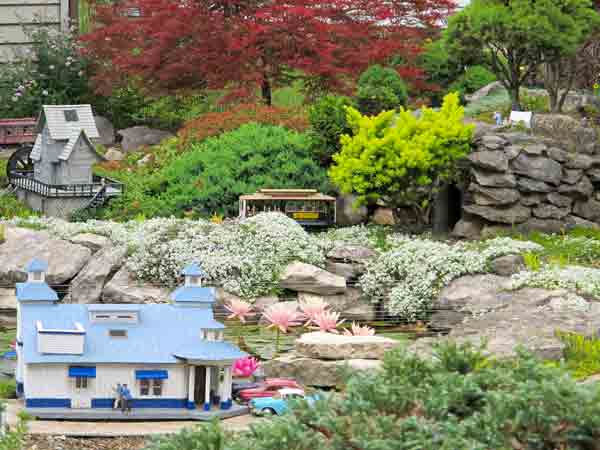
1. On either side of the Kimmels’ back-door pathway, several distinct-yet-compatible gardens lead the way to a Gulliver-like land of modeled places, serviced by freight, passenger, and excursion trains. The right side is bordered by a view-block hill of warm colored plants, red Japanese maple (Acer palmatum var., Zones 5-9), golden yew (Taxus cuspidata ‘Dwarf […]
Read More…
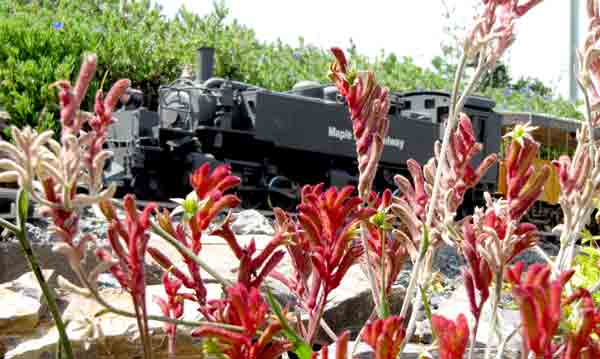
1. From the edge of the railway, red kangaroo paws (Anigozanthos ‘Dwarf Delight’, Zones 9-11) wave furry red fingers at trains from multi-branched stems all summer. Frank and Ruby Andrews planted these Aussie imports lower than the track to frame their Maple Rock Railway as trains pass. The plants’ frost-sensitive basal leaves may require mulching […]
Read More…
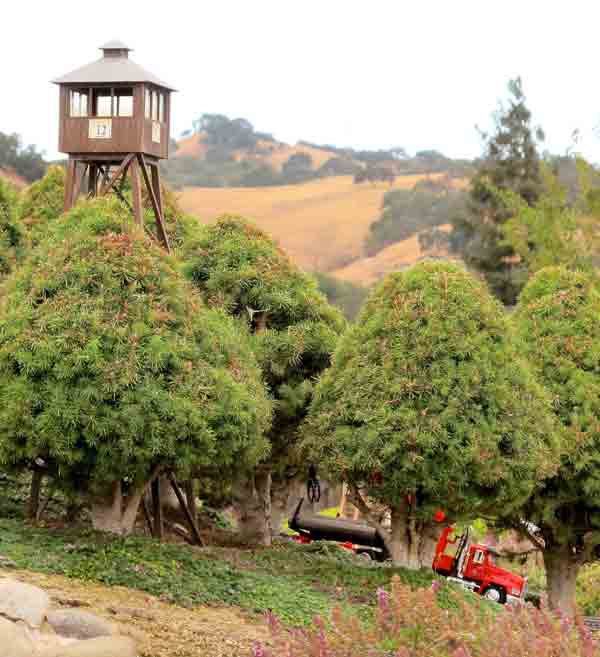
Our little scale trees really make or break the scale quality of our railway gardens. Did you know you could choose from several methods of keeping trees in scale? Here are three practices, but we’ll focus on the third. One approach, planting genetically miniature* plants, ensures almost no pruning for quite a long time but […]
Read More…
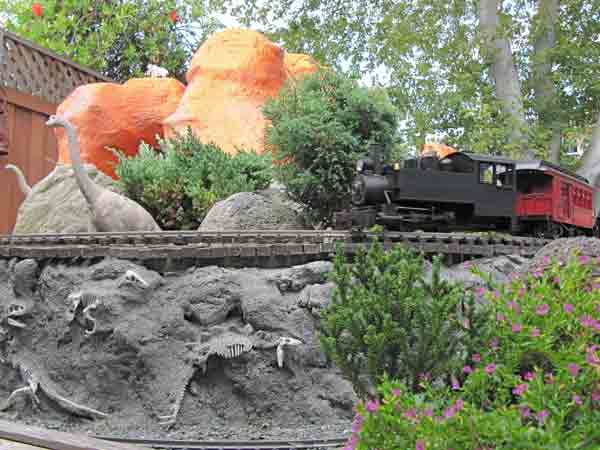
When we start out, we intend to make our dream come true. Our piqued imagination and the enthusiasm of fellow modelers are necessary to sustain us through the long construction process. Long-term and second-go-round railroad gardeners have used strong building materials for their walks, retaining walls, railroad and structures. They researched the plants to find […]
Read More…
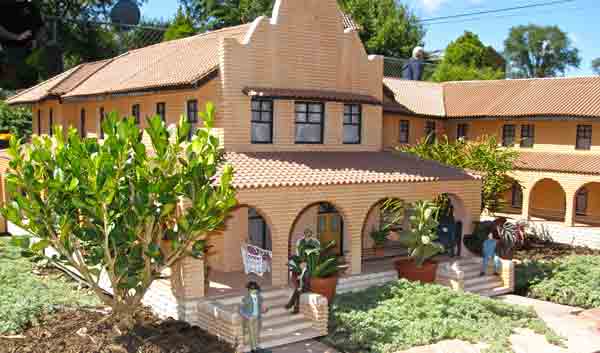
What do your buildings have to say for themselves? Each structure evokes a feeling for its purpose, the folks who might live or work there, and a bit about the history that transpired on the premises, as shown in photo 1. How the structure was built and maintained is “written on the walls.” All of […]
Read More…
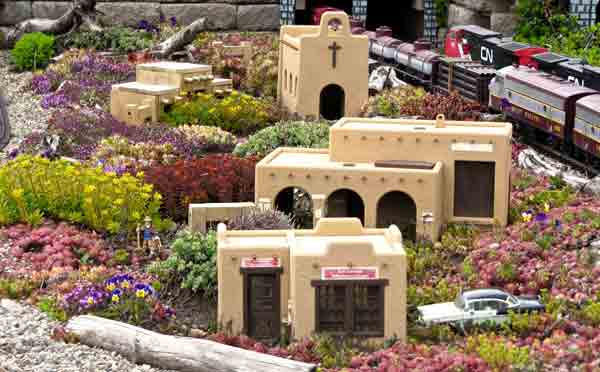
Got a brown thumb? Need low, rugged groundcover? Here’s a botanical group of succulents with more than 400 varieties—sedums. Common names include “live forever” and “stonecrop” but most gardeners call them sedum (rhymes with “can’t beat ’em”). In this column you’ll see foliage colors that range like a rainbow, from red to purple and even […]
Read More…
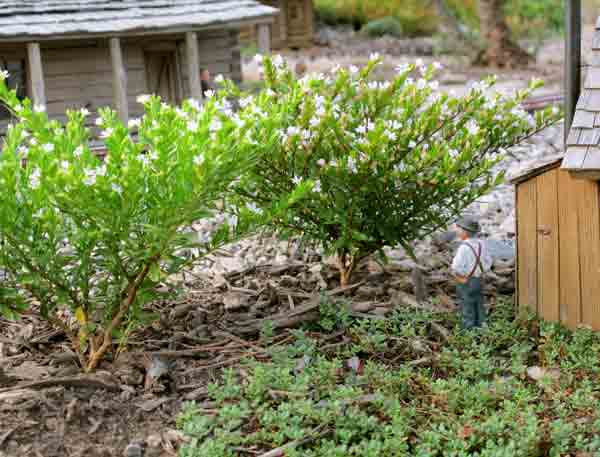
What appear to be small apple trees in bloom are really Mexican false heather, a.k.a. elfin herb (Cuphea hyssopifolia, Zones 8-11). These are easy to grow in full to partial sun and average soil and watering. They flower almost continually with white, pink, red, or purple blossoms, outdoors year round in the south or over-wintered […]
Read More…
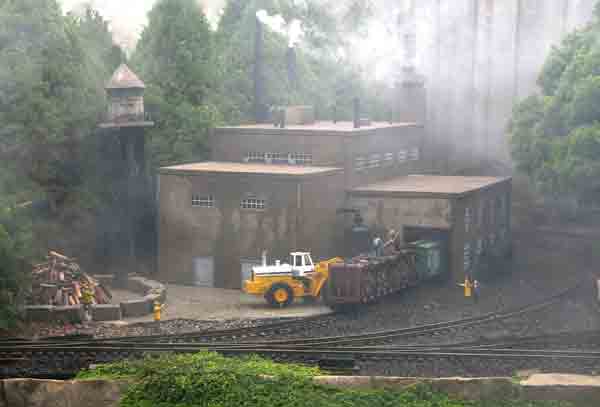
1. Since 1928, Spruce Falls Power & Paper Company in northern Ontario has provided all the paper for The New York Times, which affectionately calls it “Uncle Spruce.” Jim and Julie Barber model real places from their past and present by building concrete-sided buildings. Protected inside, a smoke machine helps to model a high-pressure weather […]
Read More…
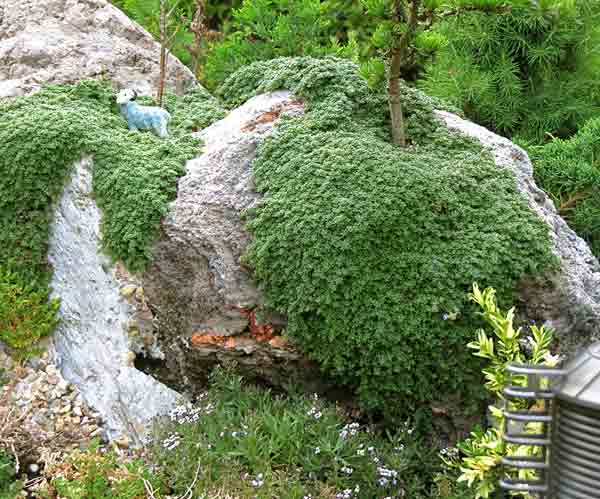
Nancy Norris Common name: Elfin thyme Latin name: Thymus serpyllum ‘Elfin’ Plant type: Groundcover Plant size: 2″ x 6″ and spreading USDA Hardiness Zones: 4-9 Cultural needs: Poor, well-drained soil, moderate to low moisture, sun to partial shade Elfin thyme deserves its status as practically everyone’s favorite scale lawn or meadow. It’s about “thyme” this […]
Read More…
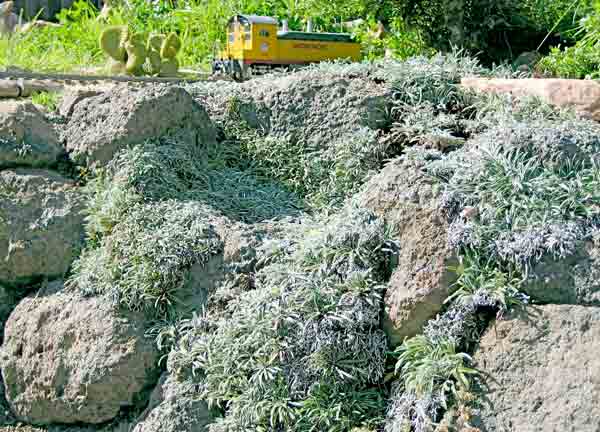
Nancy Norris Common name: Silver carpet, Dymondia Latin name: Dymondia margaretae Plant type: Groundcover USDA Hardiness Zones: 9-11 Cultural needs: Full sun to part shade; well drained, sandy soil Plant size: 1-2″ high, spreading slowly Dymondia margaretae is usually just called dymondia, because it’s the only species of a genus from South Africa. As a […]
Read More…
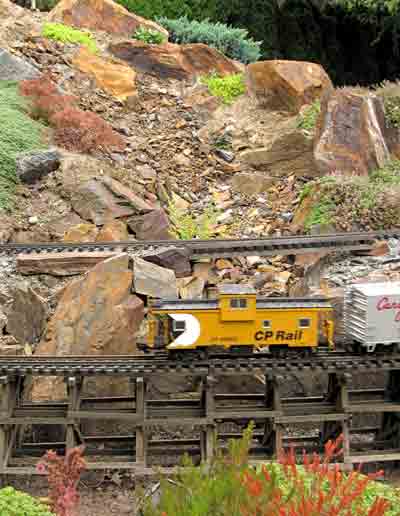
When gravity, earthquakes, or water pull the rug out from under a cliff face, its strata and fracture lines burst open. Solid slopes suddenly turn fluid. Rocks bounce and roll, creating talus, which settles in a pile at the foot of the cliff—possibly damming a waterway. Garage-size boulders split from slopes and tumble to the […]
Read More…
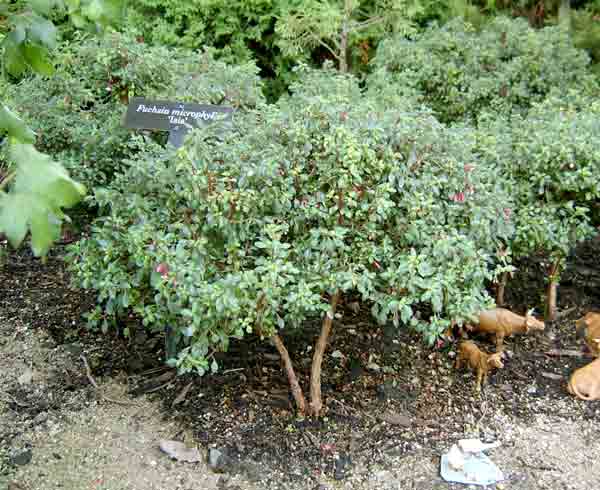
Trees are as essential to a landscape as mountains, hills, and rivers. Those of you living in (and/or modeling) the desert, will have to overlook my exuberance for trees. In this article I’d like to add to my previous discussions of conifer, deciduous, and wannabe trees, to pursue my favorite subject further. (See the list […]
Read More…












